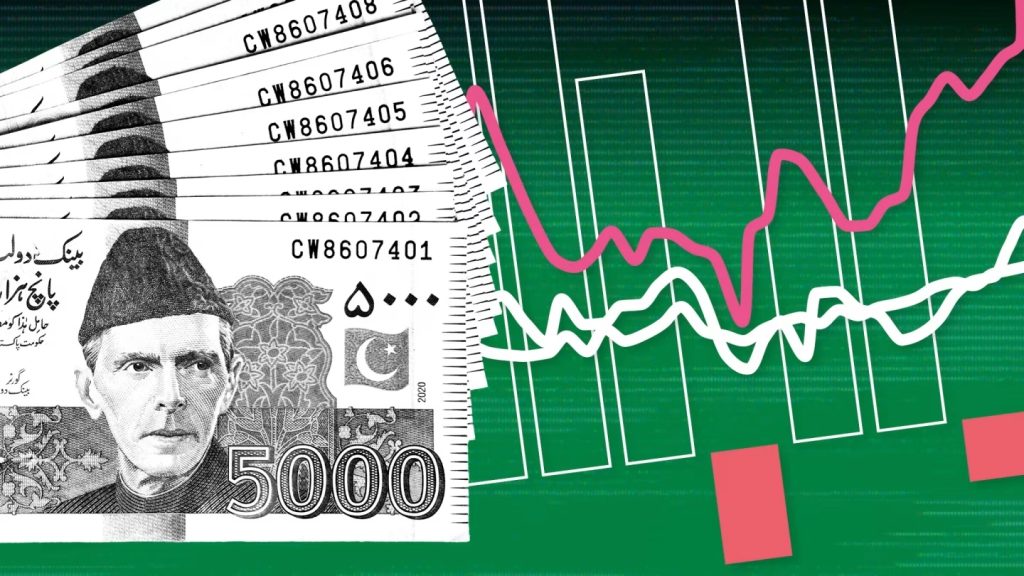Following tense ties brought on by the 2019 Pulwama assault, Pakistan is facing a severe economic crisis. When India removed Pakistan’s designation as a “most preferred nation” and imposed high taxes on imports from Pakistan, the once-thriving trade between the two countries came to an abrupt halt. In addition, tensions were heightened by the removal of Jammu and Kashmir’s special status, which prompted Pakistan to halt bilateral trade with India. In the present, Pakistan is looking into the possibilities of resuming trading relations with its eastern neighbour as it struggles with economic issues and global isolation.
Ishaq Dar, Pakistan’s minister of foreign affairs, has made certain remarks that seem to suggest a possible review of commercial relations with India. Dar’s recognition of Pakistani businessmen’s wish to resume trade highlights the growing pressure on the government to tackle economic issues, especially in Punjab, home to powerful trade interests.
Given the intricate dynamics within Pakistan’s political system, the viability of such a move is still unclear. Dar is a champion for better relations, although his diplomatic efforts may not be as successful given the military establishment’s widespread influence. Any endeavour to restart commerce with India may fail before getting traction if Rawalpindi is not on board.
Pakistan’s desire to interact with India is motivated by the latter’s rise to prominence in the world economy. Pakistan’s economy is struggling with rising rates of poverty and accumulating debt, while India’s economy is booming at a faster pace. Pakistan urgently needs to look into ways to revive its economy in view of the new World Bank study that shows a sharp rise in poverty.
Pakistan’s economic problems are made worse by its diplomatic isolation, which is made worse by India’s attempts to draw attention to Pakistan’s purported sponsorship of terrorism. Pakistan’s population is reeling from economic suffering as a result of rising inflation and the rising cost of necessities, which intensifies the need for a resumption of commerce with India.
Pakistan’s foreign currency reserves are insufficient to cover its rising debt obligations, hence requiring an additional IMF bailout. But the IMF’s support is accompanied by strict requirements, such as austerity measures that are disliked by both the Pakistani people and the bureaucracy.
Pakistan sees hope in the restart of trade with India against this backdrop of economic turmoil. Trade facilitation might offer traders and businesses much-needed respite, especially in Punjab, where the effects of the breakup with India have been keenly felt economically.
However, India’s unwillingness to return Pakistan’s goodwill highlights the pervasive problems in the two countries’ relationship. Trade normalisation is hampered by Pakistan’s unwillingness to address India’s worries about terrorism and its position on Jammu and Kashmir.
Tensions between the two countries are further heightened by the lack of a Pakistani high commissioner in India, which is seen as a symbol of mistrust and malice. In addition, Pakistan’s inability to break up terrorist networks inside its borders only serves to confirm India’s concerns, making it difficult to defend trade resumes in the current environment.
Moreover, the fact that Pakistan refuses to accept the new circumstances in Jammu and Kashmir following the revocation of Article 370 highlights a fundamental difference in the viewpoints of the two countries. The chances of trade recovering are still slim unless Pakistan accepts this fact and stops meddling in India’s domestic issues.
Pakistan is responsible for fostering an atmosphere that would allow for the restoration of bilateral relations. India’s steady economic growth and improved international position lessen Pakistan’s negotiating leverage as Pakistan struggles with economic unrest and isolation.
In conclusion, Pakistan’s hopes for a resurgence of commerce with India are a last-ditch effort in the face of diplomatic isolation and economic hardship. But normalised trade relations are still a long way off until fundamental problems are resolved and mutual trust is developed. To create the conditions for long-term economic growth and regional stability, Pakistan needs to pay attention to India’s worries and show that it is genuinely working towards reconciliation.
